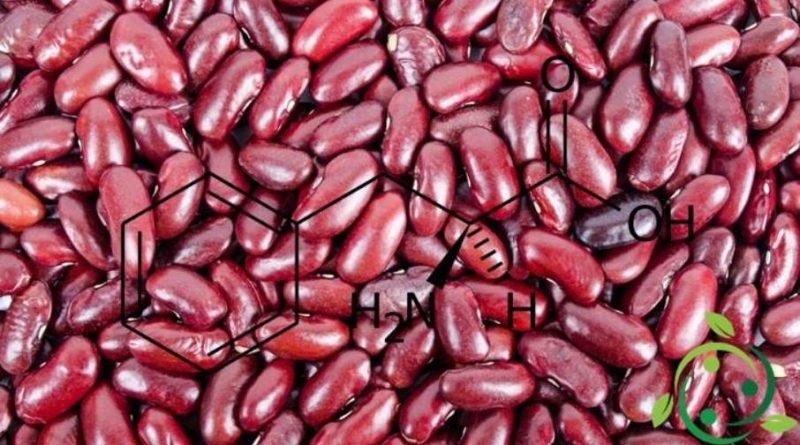Phenylalanine
Phenylalanine
Phenylalanine is an amino acid whose brute or molecular formula is: C9H11NO2 and whose name in the IUPAC nomenclature is: 2 (S) -amino-3-phenylpropanoic acid.
Phenylalanine is an amino acid that participates in the formation of the most common food proteins. Its molecule is chiral and apolar and its enantiomer L is one of the 20 ordinary amino acids.
Phenylalanine is an amino acid essential for the human body: it is in fact the basis of the production of adrenaline, melanin and thyroid hormones. Among the foods that contain the largest there are soybeans, beans, almonds and walnuts, beef, veal and pork, fish, eggs, cheese, bread and wholegrain rice, milk.
Phenylalanine is an amino acid essential for the human body and can not be synthesized by the body, but must be assimilated through the diet.
Phenylalanine can be converted into tyrosine (by means of phenylalanine hydroxylase) which in turn can be transformed into L-DOPA, epinephrine and norepinephrine.
In the presence of large doses of phenylalanine in the blood there is a decrease in the levels of serotonin, a factor that inevitably leads to the desire for food. It is also an inhibitor of melanin synthesis responsible for hypopigmentation of hair, skin and iris (blond hair and blue eyes).
Phenylalanine is the main constituent of aspartame, a sweetener that is also used in the food industry, especially in carbonated beverages.
The biosynthesis of phenylalanine can be effected by the bacterium Escherichia coli, which naturally produces aromatic amino acids such as phenylalanine; the ability to produce phenylalanine, for medical-food purposes, has been increased with the application of bioengineering interventions on Escherichia coli, altering the regulatory promoters or amplifying the number of genes that control the enzymes responsible for the synthesis of amino acids.
Phenylalanine supplements are proposed to treat depression, attention deficit / hyperactivity disorder (ADHD), Parkinson’s disease, chronic pain, arthritis, rheumatoid arthritis, symptoms of alcohol withdrawal and vitiligo. However, their mechanism of action has not yet been clarified; also for this reason L’Efsa (European Food Safety Authority) has not authorized the use of claims that the intake of phenylalanine could contribute to the maintenance of brain health, stimulate mental clarity and help memory due to absence of convincing scientific evidence of their validity.
Warning: The information reported is not medical advice and may not be accurate. The contents are for illustrative purposes only and do not replace medical advice.

